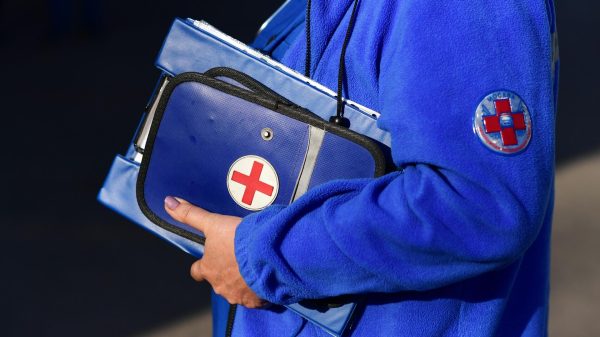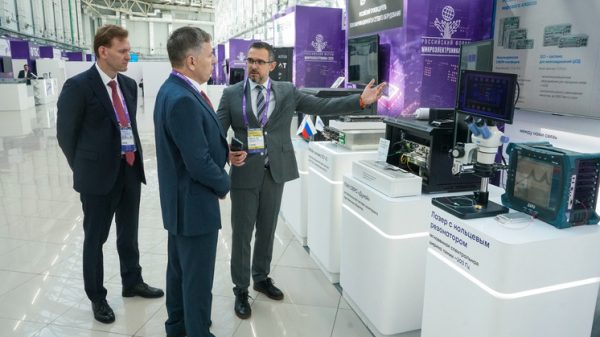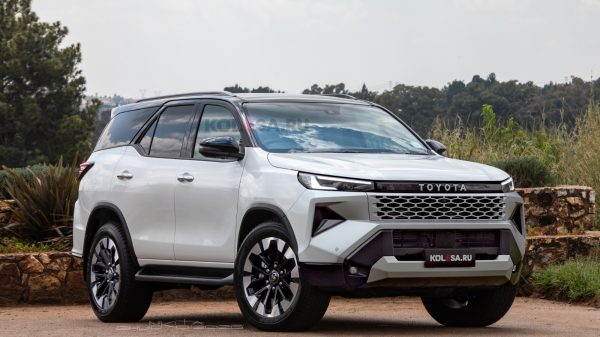
Philippe Darriet, president of the Institute for Wine and Vine Research (ISVV )and chief oenologist holds a bottle of Petrus red wine that spent a year orbiting the world
Credit: Christophe Ena /AP
Future space travellers can breathe easy.
A crate of one of the world’s most prestigious wines that spent 14 months orbiting the earth on the International Space Station touched down tasting just as good, according to wine buffs who shared their initial findings with mankind on Wednesday.
Some, however, thought the precious Bordeaux red neither looked nor tasted quite like its terrestrial counterpart, taking on a cosmic burnt-orange hue with added hints of rose petals and campfire.
The identity of the vintages had been a closely guarded secret, but start-up Space Cargo Unlimited confirmed on Wednesday that they were in fact 12 bottles of Château Petrus 2000, a prized Bordeaux red costing roughly €5,000 (£4,300) each.
Their voyage onboard a Dragon capsule operated by SpaceX, the private launching company created by Elon Musk, was part of a research project led by French start-up Space Cargo Unlimited and also involving the University of Bordeaux’s wine institute, the ISVV.
At a blind tasting this month, 12 connoisseurs were presented with the space-travelled wine alongside a bottle from the same vintage that had stayed in a cellar.
Jane Anson, a wine expert and writer with The Decanter, said: ’The earth wine was exactly how you would expect it to taste.”
However, she said the “space wine” sample, while also delicious, appeared to have aged by perhaps two to three years.

12 bottles of Bordeaux red wine spent a year on board the International Space Station to see how they coped with weightlessness
Credit: NASA
"The one that had remained on earth, for me, was still a bit more closed, a bit more tannic, a bit younger. And the one that had been up into space, the tannins had softened, the side of more floral aromatics came out," she said.
Professor Philippe Darriet, of the ISVV’s oenology research unit, said in a summary of the tasting: “Unanimously, the two wines were considered to be great wines, which means that despite the 14-month stay on the international space station, the “space wine” was very well evaluated sensorially.”
Some panel members observed "burnt-orange reflections." Others evoked aromas of cured leather or a campfire.
Not everyone noticed any earth-shattering changes, however.
"For me, the difference between the space and earth wine…it wasn’t easy to define," said Franck Dubourdieu, a Bordeaux-based agronomist and oenologist, an expert in the study of wine and wine-making.
Space Cargo said it chose the Pomerol estate’s 2000 vintage based on “oenological criteria”, including the need for a structured wine dominated by one grape variety – Merlot in this case. It stressed that it had bought the bottles at a merchant and that Chateau Petrus was not involved.
Along with the Petrus, some 320 Merlot and Cabernet Sauvignon grapevines also returned to Earth in January before being returned to Bordeaux.

Wine appears to travel well in space
Credit: PHILIPPE LOPEZ/AFP
The mission is part of a longer-term drive to make plants on earth more resilient to climate change and disease by exposing them to new stresses, and to better understand the ageing process, fermentation and bubbles in wine.
Chemical and biological analysis of the wine’s ageing process could allow scientists to find a way to artificially age fine vintages, Dr Michael Lebert, a biologist at Germany’s Friedrich-Alexander-University told AP.
The vine canes not only all survived the journey but also grew faster than vines on earth, despite limited light and water.
Dr Lebert said the experiment could help scientists develop sturdier vines on earth and pave the way for grape-growing and wine-making in space.
Plus, he said, "Grapes…are very healthy for the astronauts.”
Ms Anson said that whether the vintage had gone into orbit or remained earthbound, "They were both beautiful."

















































Свежие комментарии